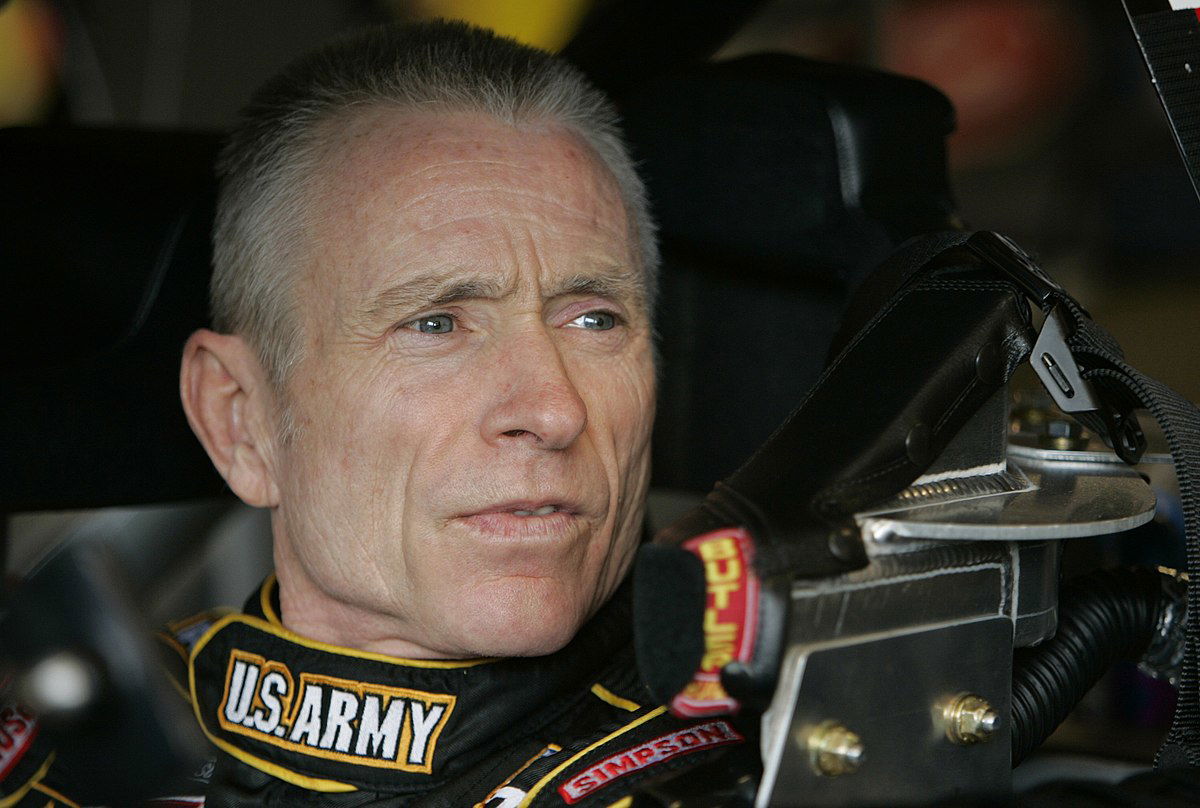
Imago
Mark Martin

Imago
Mark Martin
In the shadows of NASCAR’s illustrious past, where packed grandstands roared as stock cars thundered around ovals at Daytona, Talladega, and Darlington, lies a stark contrast to today’s reality. The sport once captivated America with its raw, unfiltered racing and larger-than-life personalities. Now, it finds itself at a crossroads.
Watch What’s Trending Now!
NASCAR Hall of Famer Mark Martin, whose 40 Cup Series victories and straightforward honesty earned him the nickname “Mr. Consistency,” recently ignited a firestorm with a candid tweet lamenting the sport’s current direction.
The controversy began when Mark Martin responded to a Twitter exchange about NASCAR’s approach to racing. When fan Justin Hatcher questioned whether profit had always been the primary motivator in NASCAR, Mark Martin didn’t hold back. “In the golden age of NASCAR,” Mark Martin wrote, “the sport would never consider compromising RACING for entertainment. The racing was entertaining to the fans and there was no need to try and attract people who had no interest in cars and car racing. The sport was BIG enough! Bigger than it is now.”
ADVERTISEMENT
This tension traces back to the leadership transition when Brian France took over from his father, Bill France Jr., in 2003. While Brian’s tenure (2003-2018) drew criticism for introducing the playoff format and being frequently absent from races, the leadership situation has arguably deteriorated further under Jim France, who took over in 2018.
In the golden age of NASCAR the sport would never consider compromising RACING for entertainment. The racing was entertaining to the fans and there was no need to try and attract people who had no interest in cars and car racing. The sport was BIG enough! Bigger than it is now. https://t.co/hUKV6JG7GW
— Mark Martin (@markmartin) April 30, 2025
Let’s take a look at what made the 2000s so iconic for NASCAR. We didn’t just have drivers competing for a championship; we had personalities, all bringing their flavor to the sport. Dale Earnhardt Jr. was up and about, racing in the #8 Bud car, winning races and trying to win a championship. You had younger drivers emerging, Tony Stewart, Martin Truex Jr., Brad Keselowski, Kyle Busch, and many more. They drove against veterans of the sport, drivers like Carl Edwards, Jimmie Johnson, and even Jeff Gordon! These drivers weren’t afraid of speaking out.
ADVERTISEMENT
As Denny Hamlin once said, “When me and Kevin [Harvick] are gone, someone has to step up and be the voice of reason and call things as they are. I know all of these young guys are just happy to be here. They ain’t going to be happy to be here when their brains are scrambled for the rest of their lives.”
More than that, fans knew races would be good even without crashes. In the era of the Next-Gen car, overtaking is rare, especially compared to older cars. The car designs have worsened safety conditions on tracks because they caused Kurt Busch and multiple other drivers to suffer concussions and injuries. The 2024 season has been particularly marked by officiating controversies, with NASCAR officials having to address the media after nearly “a double-digit amount of races” this year due to controversial calls or delayed decisions, such as the recent 27-minute review at Martinsville Speedway.
ADVERTISEMENT
Let’s see what the fans have to say.
Core Fans Rally Behind Martin’s Assessment
“NASCAR went downhill because they decided to sacrifice authenticity in favor of manufactured drama and entertainment,” one fan commented, echoing Martin’s sentiment. “Brian France had no clue what made people fall in love with NASCAR. People loved it because it was real.” This perspective highlights the disconnect between leadership decisions and fan desires. The introduction of stage racing in 2017, which artificially breaks races into segments with predetermined caution periods, exemplifies this shift from organic competition to manufactured excitement, precisely what Martin referenced when lamenting how racing was compromised for entertainment value.
ADVERTISEMENT
Another fan pointedly observed, “Making NASCAR fun for anyone is not the same as making NASCAR fun for everyone. Alienating the core fan base in search of new fans never works anywhere.” This statement reflects NASCAR’s declining attendance since its 2000s peak, when tracks routinely sold out 100,000+ seat venues. Today, many facilities have removed thousands of seats to avoid the appearance of empty grandstands. The data support the fan criticism: despite numerous format changes designed to attract casual viewers, both attendance and viewership continue their downward trend.
“They saw Formula 1 worldwide and thought that’s what we need but Americana isn’t clean blue bloods. We’re middle America, dirt under our nails, and full of grit,” another fan commented. This sentiment cuts to NASCAR’s cultural identity crisis. The sport’s roots in Southern dirt tracks and moonshine runners gave it an authenticity that resonated with working-class America. The France family’s attempts to “polish” this image through format changes and corporate-friendly approaches have seemingly diluted the very essence that made NASCAR unique in the American sports landscape.
Fan commentary also highlighted the diminished role of manufacturers, with one noting, “‘Win on Sunday, sell on Monday’ was a big deal in the golden age. I don’t think it is as relevant as it was before.” Another fan concluded, “Today’s NASCAR is run by Businessmen with Business degrees who happen to run a Racing Business. In the golden age, NASCAR was run by racers.” This fundamental shift in leadership philosophy—from racing enthusiasts who understood business to business executives who oversee racing—encapsulates the very concern Martin expressed. As NASCAR continues its quest to recapture its former glory, the question remains whether its leadership will heed the voices of legends like Martin and the passionate fans who formed the bedrock of the sport’s success.
ADVERTISEMENT
ADVERTISEMENT
ADVERTISEMENT
ADVERTISEMENT

